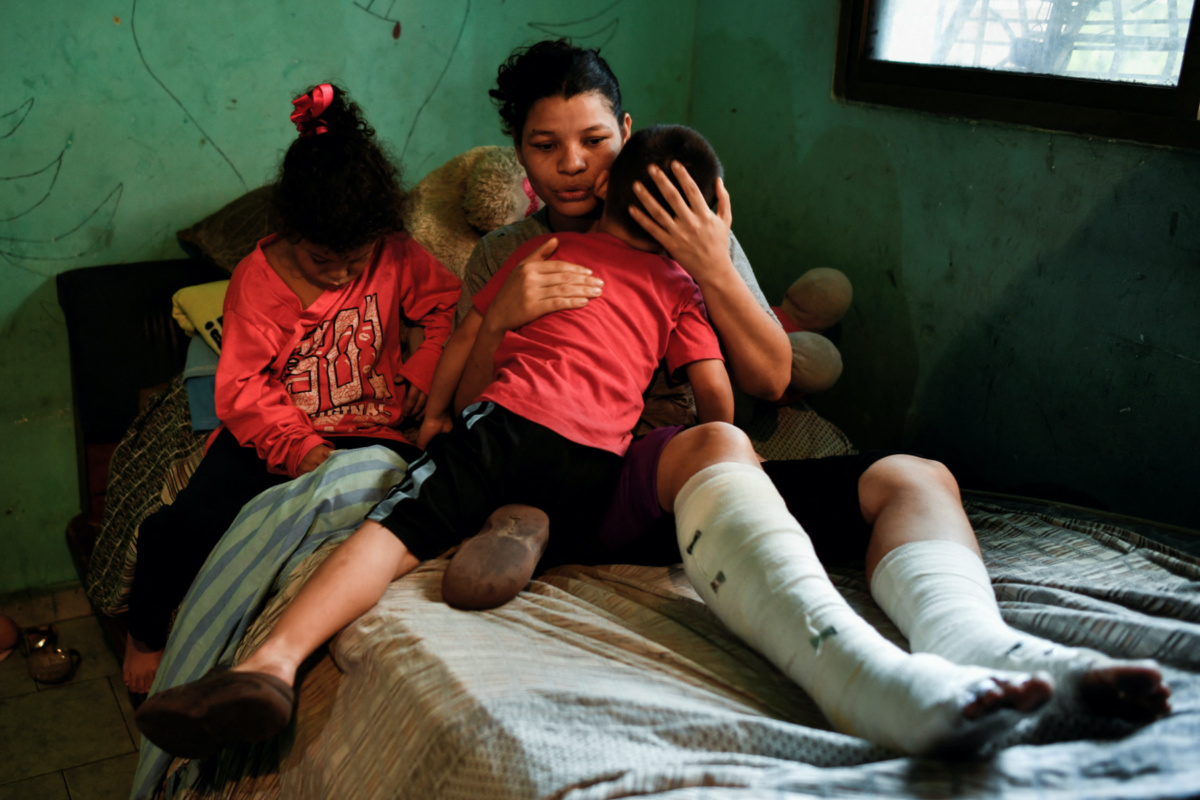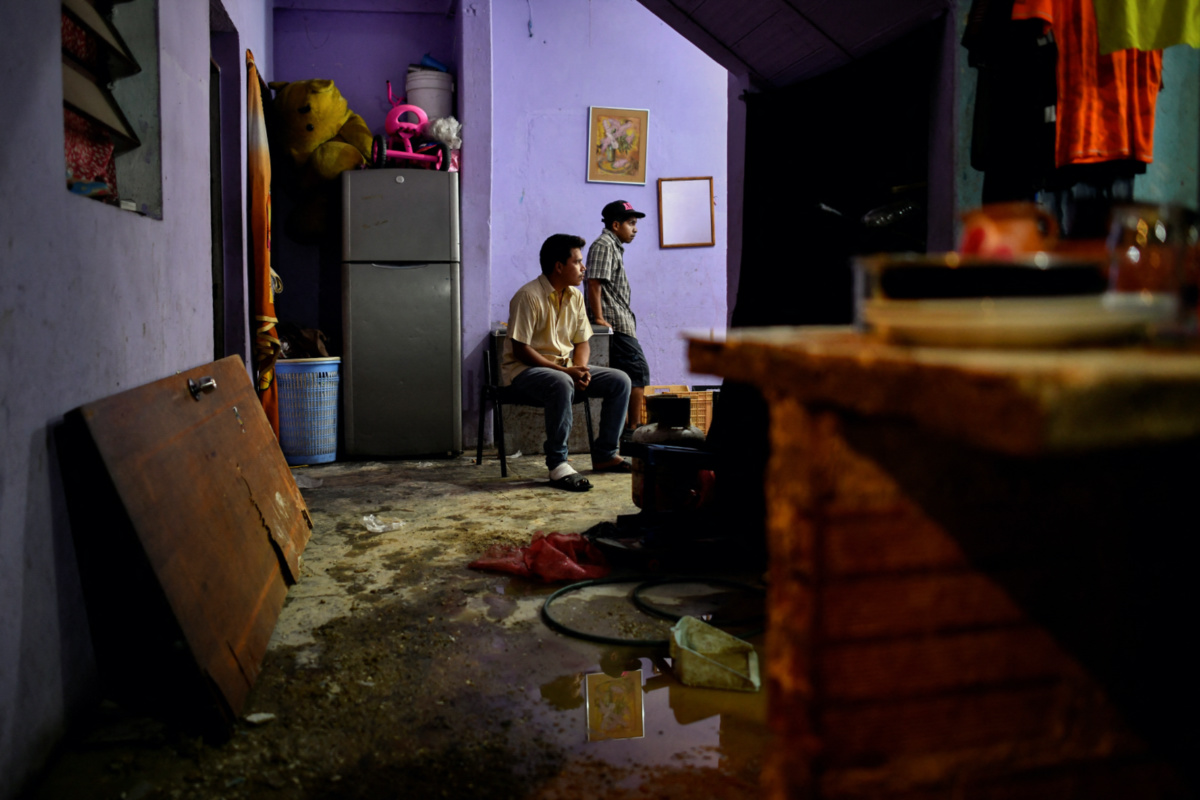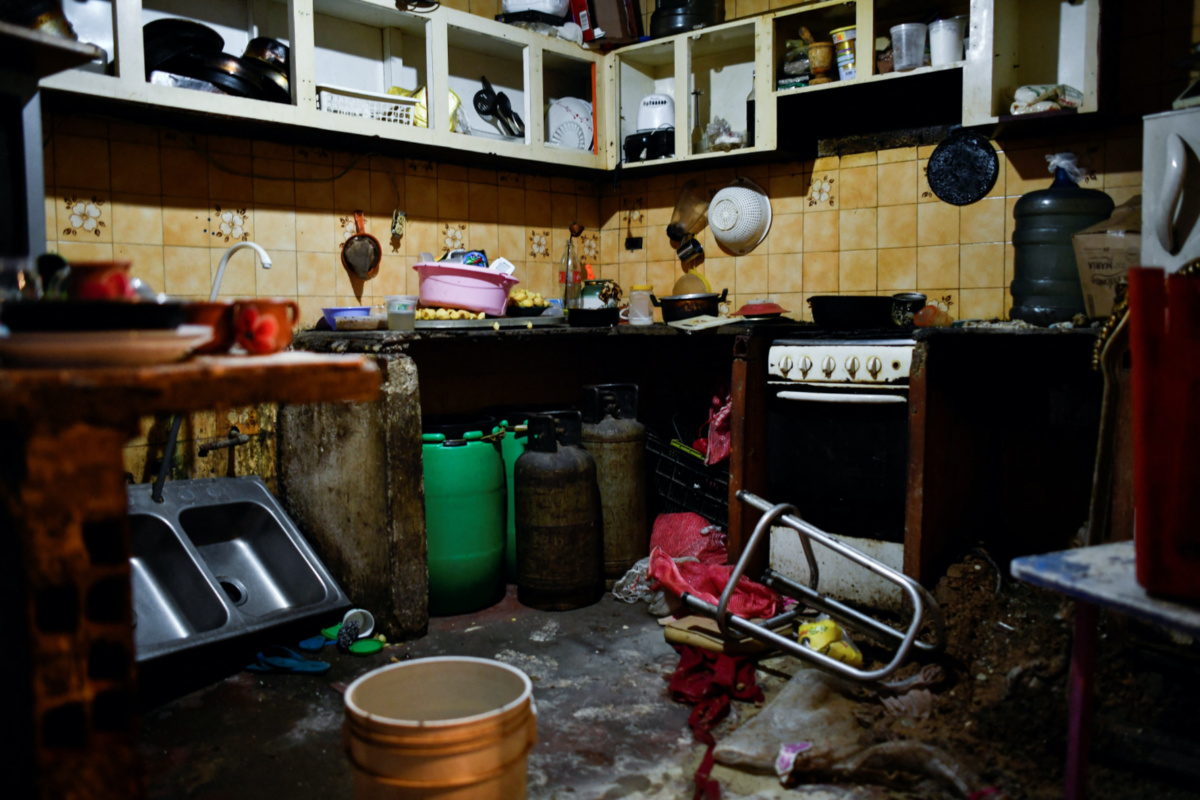Caracas, Venezuela
Reuters
Venezuelan housewife Leoana Maricuto was cooking in the kitchen with her husband and their three-year-old son last week when a gas canister exploded, engulfing her in flames.
“My husband was making some potatoes, and all of a sudden the explosion happened,” said Maricuto, 32, as she sat on her bed, legs bandaged, in her poor eastern Caracas neighbourhood.
Maricuto’s husband, vegetable seller Gerardo Quinones, 24, suffered burns to his foot, while a cousin hit by the cylinder in the accident was hospitalized for burns and other injuries.
“I couldn’t get out,” Quinones said. “We tried to put the fire out. The canister caught fire from the top.”
Neighbours extinguished the fire with soil before it spread through the house.
Many other Venezuelans have been less fortunate.

Leoana Maricuto hugs her son at their home after she burnt her legs when a gas cylinder exploded, injuring her and her husband and damaging their home, in Caracas, Venezuela, on 3rd May. PICTURE: Reuters/Gaby Oraa.
Deaths related to gas explosions have risen in recent months in Venezuela, where energy analysts say just 20 per cent of an estimated 15 million gas canisters are fit for use in homes.
Many canisters are as old as 20 years, according to experts, and cash-strapped families receiving government subsidized gas rarely can afford to buy the few new cylinders available.
In Venezuela, home to the world’s largest crude reserves, over 75 per cent of households cook with gas from cylinders, while 17 per cent – mostly in the capital Caracas – get gas piped to their homes, according to the non-governmental Venezuelan Observatory of Public Services.
State oil company Petróleos de Venezuela, SA, or PDVSA , pipes in household gas and supplies about 80 per cent of the country’s liquefied petroleum gas, which is sold in canisters as propane. A handful of private firms control about 15 per cent of the market.
Venezuela has been dealing with an LPG deficit since US sanctions halted imports in 2020.
Refinery workers said PDVSA’s LPG production volumes and quality will continue to suffer as its refineries work at about a fourth of capacity.

Gerardo Quinonez, husband of Leoana Maricuto (not pictured), sits in a chair next to a relative after he burnt his foot when a gas cylinder exploded injuring him and his wife and damaging their home, in Caracas, Venezuela, on 3rd May. PICTURE: Reuters/Gaby Oraa
No tests, no smell
Canisters should be subjected to hydro-static tests – pressurised water is injected to determine if there are leaks – and staff at filling stations should visually inspect valves, energy consultant Nelson Hernandez told Reuters.
Cooking gas is also supposed to have foul-smelling methanethiol as an additive, making leaks easier to detect, Hernandez said. “But there hasn’t been any for a year, because PDVSA didn’t have a way to import methanethiol.”
We rely on our readers to fund Sight's work - become a financial supporter today!
For more information, head to our Subscriber's page.
PDVSA, whose website says gas supply is “efficient, effective, safe and timely,” did not respond to a request for comment. Neither did Venezuela’s communication ministry nor canister maker Gavenplast.
Though the government subsidises gas, it fails to regulate maintenance and renewal of cylinders, said Antero Alvarado, Gas Energy Latin America’s director.
“The latest cylinders are from 2015. On top of that, the old ones have not been thermostatically tested for leakage,” he said.

The kitchen of Leoana Maricuto and Gerardo Quinonez is pictured after a gas cylinder exploded injuring Leoana and Gerardo damaging part of their home, in Caracas, Venezuela, on 3rd May. PICTURE: Reuters/Gaby Oraa.
A canister leak caused the explosion in Maricuto’s kitchen, local officials told Reuters.
A fire brigade in the nearby state of Aragua gets an average of about 10 calls per week about gas leaks, said an official who asked not to be named.
Anibal Martinez, 25, lost four members of his family, including his cousin and her three-year-old son, in a gas cylinder explosion that destroyed his home in 2021.
Martinez, who bears a scar on his back from the incident, was sleeping when a wall hit by the explosion fell on top of him, he said.
“I got out from under the rubble. I was able to see the sky, but the house was gone.”
– Additional reporting by MIRCELY GUANIPA in Maracay and MARIANNA PARRAGA in Houston, US.






